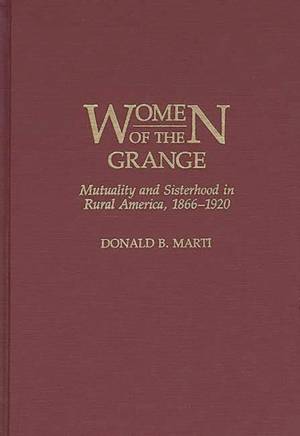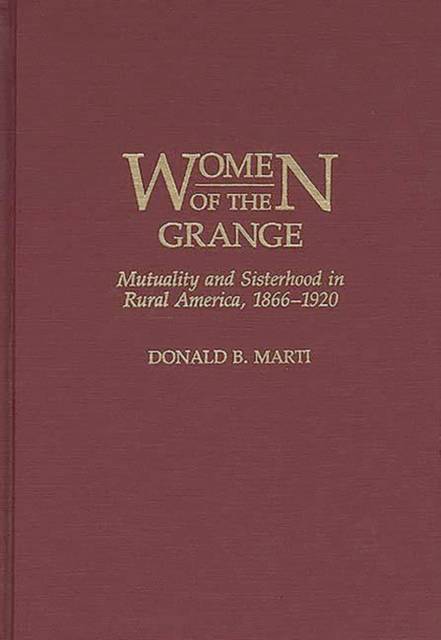
- Afhalen na 1 uur in een winkel met voorraad
- Gratis thuislevering in België vanaf € 30
- Ruim aanbod met 7 miljoen producten
- Afhalen na 1 uur in een winkel met voorraad
- Gratis thuislevering in België vanaf € 30
- Ruim aanbod met 7 miljoen producten
Omschrijving
Recent scholarship suggests that farm women have characteristically tried to improve their societal positions by pursuing strategies of mutuality with men, rather than by forming relationships of sisterhood with each other. Nowhere is this premise more clearly illustrated than in the rituals and programs of the Grange, the secret fraternal organization established to serve farmers. In this work, Donald Marti examines the important roles that women have always played in the Grange, and explores the opportunities for sociability and cooperation that fostered sisterhood and encouraged women to pursue their own distinctive interests.
Marti's book offers a careful and detailed analysis of women's roles in the Grange, and introduces readers to thoughtful, articulate farm women who have been virtually ignored in historical literature. His well-balanced study deflates some of the claims that have been made for the order's liberating influence, but at the same time takes that influence very seriously. Along the way, he traces the growth of women's roles from the promise of equality made by the Grange's founders, to the turn-of-the-century strides that made women some of the leading state and local officers. Although mainly focusing on the years up to 1920, the study also surveys more recent developments such as Grange women's continued interest in public reform, their narrowed focus on domestic crafts beginning in the 1950s, and the striking changes of the 1980s. This work represents an important new chapter in the historical discussion of the Grange, and will be a welcome publication for students of American history, women's studies, and agricultural history.Specificaties
Betrokkenen
- Auteur(s):
- Uitgeverij:
Inhoud
- Aantal bladzijden:
- 168
- Taal:
- Engels
- Reeks:
Eigenschappen
- Productcode (EAN):
- 9780313257230
- Verschijningsdatum:
- 30/08/1991
- Uitvoering:
- Hardcover
- Formaat:
- Genaaid
- Afmetingen:
- 163 mm x 245 mm
- Gewicht:
- 444 g

Alleen bij Standaard Boekhandel
Beoordelingen
We publiceren alleen reviews die voldoen aan de voorwaarden voor reviews. Bekijk onze voorwaarden voor reviews.












